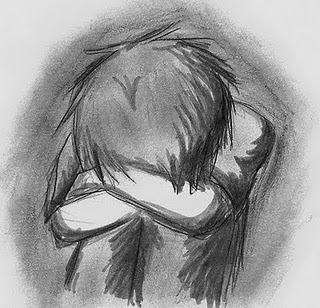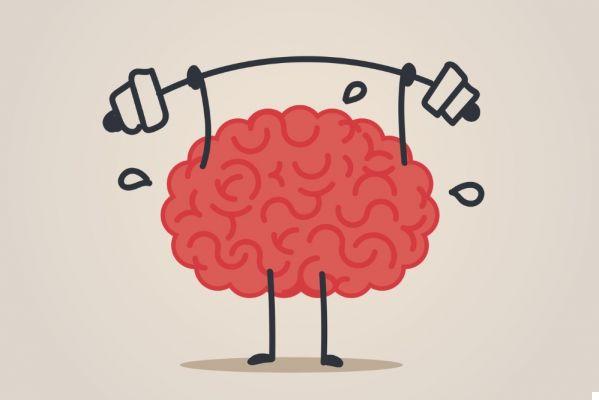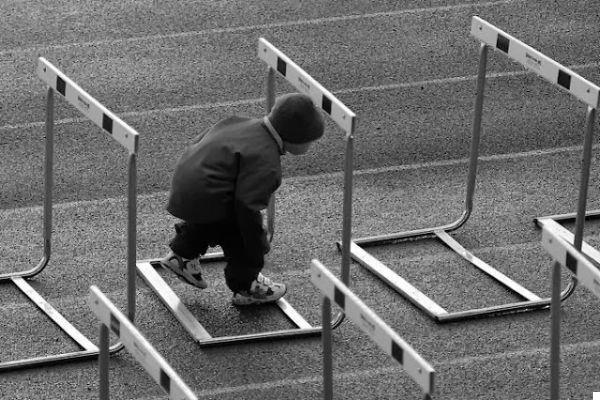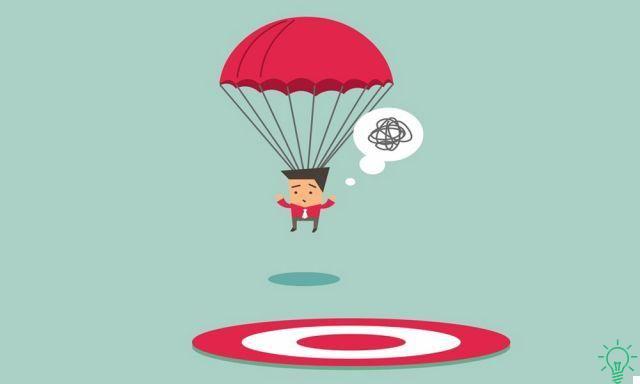
We usually associate crying with weakness. We think that when someone cries they are weak. But that's not always the case. Crying is a very versatile expression that allows us to release many feelings and emotions. So sometimes we don't cry because of weakness, but because we have been too strong.
Often in life we have to face one difficult situation after another, without stopping to breathe. We know that hard times pile up and problems never come by themselves. In these cases, we force ourselves to be strong and withstand the storm.
But when problems eventually allow us to take a break, we collapse, we fall under the weight of our own efforts. In these cases, crying does not indicate weakness, but that our strength has gone beyond the limits. It means that life has demanded too much of us and that we carry too heavy a burden on our shoulders.
No one can be strong all the days of his life
Many people have been brought up to think that tears are synonymous with weakness and you shouldn't cry because it is useless. This idea often leads to repressing our sadness, pain or frustration. But that doesn't mean these feelings disappear, we just hid them. In the long run, this repression can lead to more serious problems.
Appearing normal and cracking a smile is not the solution, because when you hide your emotions from the world, you end up hiding them from yourself too. These repressed emotions will recur in the form of health problems such as headaches, digestive disorders, muscle tension, dizziness, skin rashes (psoriasis) or even more serious illness.
Therefore, it is important to understand that you cannot be strong every day, the time will come when you will have to face those feelings and let them vent, even through crying. In fact, you will realize that it is deeply liberating and also therapeutic. Crying is cathartic. After crying comes quiet, you will be able to take an emotional distance from the situation and you can make better decisions.
Why do we "collapse" after a period of high tension?
It is likely that this has happened to you sometime: after a period of severe stress, in which you have resisted to the end, you come to a point where your forces leave you and you collapse, in the most literal sense of the word.
This is due to a natural response of our organism. In fact, stress goes through three distinct phases:
1. Alarm. In this phase, the fight or flight response is activated. It increases the level of adrenaline, which generates a series of changes in the body that allow us to keep active, with the mind alert and ready to react to danger. This is the stage where we simply act without thinking too much, with enormous energy.
2. Resistance. When the stressful situation persists, we move on to the second phase, in which the level of cortisol secreted by the adrenal glands increases. This hormone helps to cope with stress, allows you to stay still and endure difficulties. The problem is that the adrenal glands get tired and this negatively affects the whole organism.
3. Exhaustion. Even if the stressful situation has not disappeared, there comes a point where our body is unable to maintain the level of activity and excitement. Then there is a collapse in the levels of the hormones that kept us active, and we experience a feeling of extreme fatigue, both physically and psychologically. It is at this stage when crying is not an expression of weakness, but it implies that we have fought too much and too long.
Set limits, so as not to give more than we can
It is true that sometimes life puts us on the ropes, but the final decision, how we deal with problems, is up to us. For example, we can choose to lock ourselves in a protective shell or, conversely, ask for help to avoid having to carry all the weight alone. We can push away the people who are harming us, without waiting for the wound to deepen, or we can indulge in relaxing hobbies to protect ourselves from a stressful job.
The keys to being strong without breaking down are:
- Pay attention to the signs of stress and anxiety, do not let them grow out of all proportion.
- Feel good about yourself, accepted and loved for who you are, so that, even if you make a mistake, the mistake does not turn into an unnecessary burden.
- Set clear limits, not so much for others but for yourself, so you know when it's time to say "no" definitively.
- Allow yourself to be weak, every now and then, repeat to yourself that you are unable to cope with the situation, you cannot take on more responsibility and you need to take a break.
- Expect from others the same respect, love, affection and recognition that you give them. We cannot give continuously without receiving anything in return, because we too need support and understanding.
- 53Get Personal Growh


























